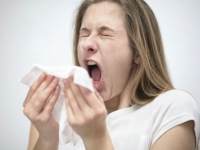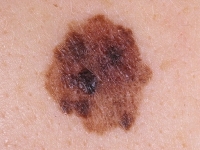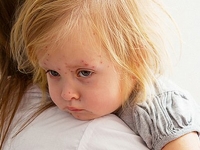Why do we suffer from allergies: treat or ignore?
 In some people, seemingly completely “harmless” plants or animals can cause a strong allergic reaction. Some people, with the arrival of spring, rejoice in blooming flowers and trees, while others suffer from a runny nose, stuffy nose and tears caused by a reaction to pollen. For some, an allergic reaction appears on food or house dust. Why is this happening and how dangerous is it for the health to ignore allergies?
In some people, seemingly completely “harmless” plants or animals can cause a strong allergic reaction. Some people, with the arrival of spring, rejoice in blooming flowers and trees, while others suffer from a runny nose, stuffy nose and tears caused by a reaction to pollen. For some, an allergic reaction appears on food or house dust. Why is this happening and how dangerous is it for the health to ignore allergies?
Why does an acute body reaction to allergens occur?
Allergens are substances that cause an acute reaction of the immune system in humans. Until now, doctors do not have one hundred percent answer, what exactly is the key factor in the occurrence of allergies. Sometimes an allergic reaction manifests itself vividly. And sometimes the symptoms are so weak that a person does not even suspect an allergic reaction to anything. Immunologists say that the hereditary factor is of paramount importance in the development of allergic reactions. The increased excitability of the immune system in response to some foreign substances (pollen, animal hair, food, etc.) is caused by a specific set of specific genes and is transmitted from parents to children.
Recently, the number of allergy sufferers is growing: doctors associate this fact with poor ecology and many genetically modified products, and with the excessive “sterility” of some people whose immunity is suppressed and does not adapt to the constant struggle with viruses and bacteria. Some food “allergies”, especially in young children, have nothing to do with disruptions in the immune system. Skin rashes and other allergic reactions to foods are associated with improper feeding of children and problems with the digestive system.
Most common allergens
When the allergen enters the body, there is an active production of antibodies (sensitized lymphocytes are produced). Then an inflammatory reaction occurs and histamine is produced – an organic compound, a mediator of allergic reactions. Therefore, medicines for allergies are called antihistamine drugs. And already in the final stage of an allergic reaction under the influence of allergens on the cells and tissues, clinical signs begin to manifest themselves – rash, itching, cough, runny nose, etc.
The most common allergens are pollen of plants (pollinosis), food, mold, insects (when bitten), animal hair, house dust, which is full of mites, etc. Also, allergies can cause cold and vice versa – the sun, medicines, synthetic clothing. To identify the allergen, you can pass a special test. The treatment of allergic reactions involved immunologists and allergists.
Should I Treat Allergies and How to Avoid Allergen Reactions
The less a person is in contact with the allergen – the lower the risk of developing allergies. Therefore, it is important to monitor the cleanliness of the house or apartment, to deal with the mold that has appeared, to carry out wet cleaning and to minimize the number of things accumulating dust, to avoid some products (it is especially important to feed children according to age). In the season of mass flowering of plants, it is better not to go into a forest or a field; if contact with allergens is not avoided, then it is important to choose an antihistamine correctly and take it.
The most dangerous complications of an allergic reaction are angioedema and anaphylactic shock. Especially dangerous is laryngeal edema, in which a person may suffocate. If he does not receive medical care. With anaphylactic shock, the blood pressure drops sharply, the breathing process is disturbed, the person loses consciousness. Both conditions require urgent hospitalization. If the allergy is not treated, then bronchial asthma, skin lesions (dermatosis), etc. may develop.



